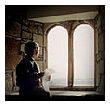Home »
Posts Tagged "truth"
Posted by Anne on Aug 26, 2014 in Naming, Writing | 1 comment
My favourite television show in the late nineties was the science fiction series, Space: Above and Beyond. I was such a huge fan I even wrote fanfic! Lots of readers liked one particular story, Icarus Walking—a story of truth, honour, heroism and sacrifice. In fact one person resonated with it so much she asked me to mentor her as a writer.
As I worked my way through her manuscript, I started to notice repeated ash tree symbolism. I quizzed Melissa about it. She insisted it was unintentional. This was really early days in my investigations about names but I was already suspicious. Could there be a connection between the name Melissa and the ash tree symbol?
Now any book of names will tell you that Melissa means either bee or honey. Not deterred, I looked up words for ash trees. And there I discovered the story of Melias, the nymph of the ash tree, and the saga of how the name Melissa, over millennia, changed in meaning from ash tree to bee.
The intriguing consequence of this exercise was the discovery that ‘melissa’ is also a name for the North Pole. That odd finding led to deeper digging into other ways the North Pole could be symbolised. In no time at all, it became obvious to me why Melissa had resonated so much with Icarus Walking: it was full to overflowing with obscure polar symbolism. All sorts of mysterious arctic icons spilled out of just about every scene. In particular, I seemed to focus on an idea I’d never heard of previously: a cynosure.
read more
Posted by Anne on Aug 13, 2014 in Writing | 6 comments
‘I didn’t do anything illegal.’
Over the last few years, as various officials in high office have been accused of criminal behaviour, I’ve listened carefully to their language.
Their defence is never ‘I didn’t do it.’ Instead it’s the subtly nuanced ‘I didn’t do anything unlawful.’ Or some variation on that theme which emphasises legality rather than morality.
This reaction is fascinating. No one has been prepared to add public lies to secret sins. There’s obviously a paramount desire to retain some personal integrity through a carefully–edited version of the truth. In fact, I’m sure many of the officials concerned would feel able to state with perfect conviction that they are scrupulously honest!
These situations highlight the importance of individual perception when it comes to the law.
Oftentimes I’ve read that the Ten Commandments are not substantially different from a multitude of ancient (and earlier) legal systems such as the Code of Hammurabi, Code of Ur–Nammu or Laws of Eshnunna. That the laws Moses gave the Israelites had precedents all the way across the Middle East.
Joel Hoffman, however, in his significant book, And God Said: How Translations Conceal the Bible’s Original Meaning (with which I disagree passionately in parts) makes a very shrewd point. The Ten Commandments are unique. They are one–of–a–kind because they simply say: ‘Don’t lie.’ ‘Don’t kill.’ ‘Don’t steal.’
Because it’s wrong. Period. No arguments. No excuses.
read more
Posted by Anne on Jul 3, 2014 in Naming, Writing | 1 comment
Cleopas is only mentioned once in Scripture. He and an unnamed friend are walking to the village of Emmaus. It was the morning of the Resurrection and you’d be forgiven for expecting Jesus would be in Jerusalem, reassuring His disciples. They’re in disarray, they’re suffering from the betrayal of Judas, they’re frightened and uneasy. You’d think He’d go to His closest friends first.
But no. He headed off for a village more than ten kilometres away, intent on a rendezvous with Cleopas. Who is completely unaware he’s got a divine appointment.
Not long previously, Jesus had spoken with Mary Magdalene. At least we know a little of her background. However, we’ve never even heard of Cleopas before in the gospels and we’ll never hear of him again.
So what’s the significance of this event for Cleopas himself? Why did Jesus choose him?
read more
Posted by Anne on Jun 17, 2014 in Writing | 5 comments
I knew something was seriously wrong when I couldn’t find the keys.
Not the keys to my house, but the keys the Holy Spirit gives us to unlock the door of destiny. Every other part of an entrance makes its appearance in Paul’s description of the Armour of God so, by my reckoning, keys should be there as well.
The words for door and threshold both turn up without any mask or disguise. Thureos, the word for shield, comes from the Greek for door while belos, the word for fiery darts, is identical to belos for threshold. They’re not hard to identify. In addition, there are transparent allusions to pillars or doorposts, hinge, lintel, gate and mezuzah (the memorial box devout Jews affix to their doorways), some of which we’ve already looked at in this series.
But no keys.
read more

